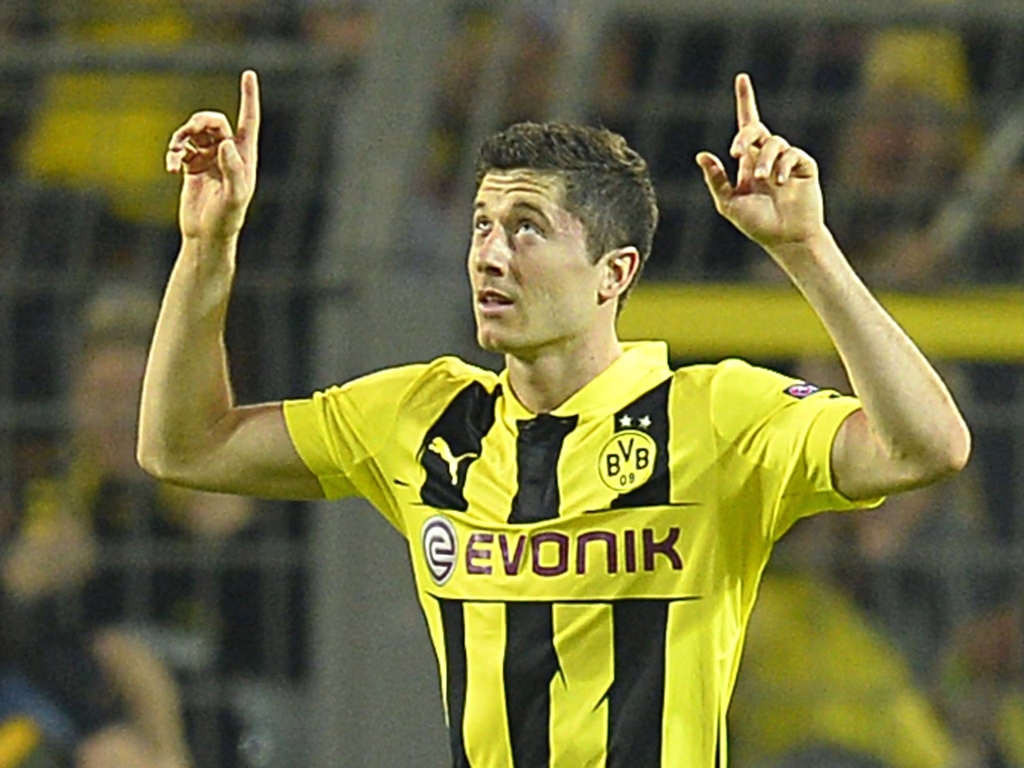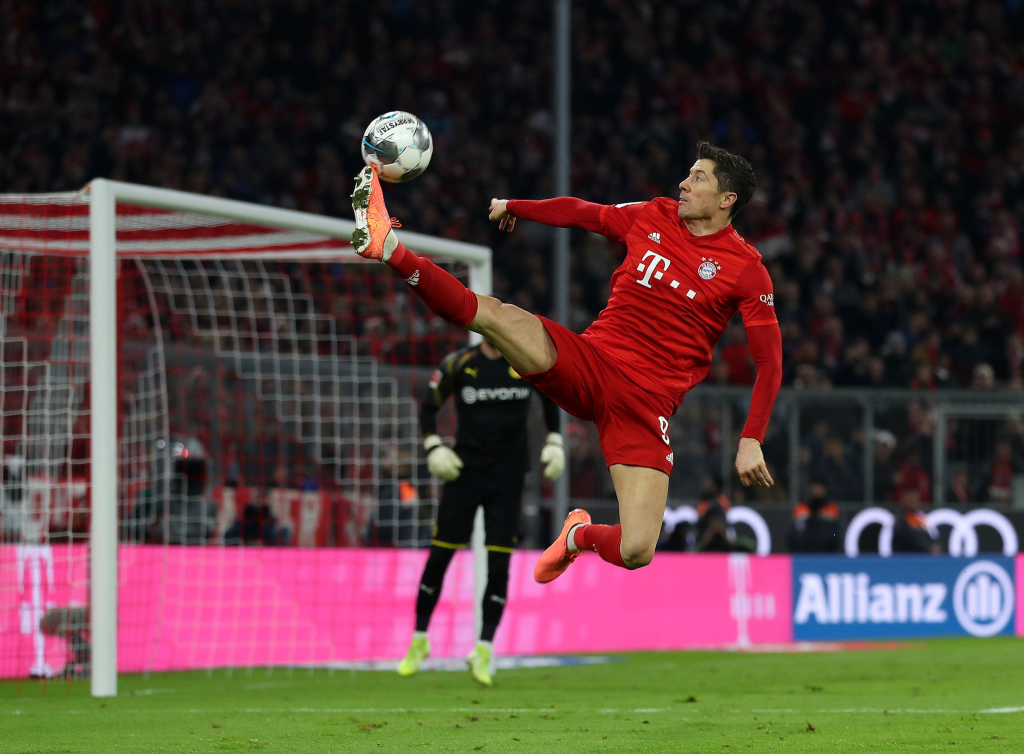Robert Lewandowski Early Career starts in Warsaw, 1988. A boy is born into a family where sport isn’t a hobby—it’s part of daily life. His father, Krzysztof, a former judoka and amateur footballer, and his mother, Iwona, a volleyball player, set the tone early: discipline, hard work, the notion that “talent without effort is just potential.” From the tiny pitches of Partyzant Leszno to the youth setup at MKS Varsovia Warsaw, young Robert kicked, tripped, learned. He was known among peers, even then, for chasing every loose ball, for being the last one to leave training, for imagining goals before he even scored them.
He moved from Varsovia to Delta Warsaw, breaking into their first team in the fourth tier as a teenager. Even when there weren’t big crowds, or fancy facilities, every match mattered. Every goal mattered.
Robert Lewandowski Early Career: Rejection at Legia Warsaw
At around 17, a painful moment: Legia Warsaw reserves passed on him. Injury had stalled progress, confidence wavered, and the future looked murky. He was released. Among young footballers, that could have meant the end of a dream. But for Lewandowski, it became the charge—an internal voice:
“If they don’t see me now, I will make them see me later.”
That sting of rejection sharpened him. It taught him to rebuild, to not rely on prestige or status, but on performance, on goals, on consistency. It taught him resilience.
Znicz Pruszków: Where Form Meets Opportunity
In 2006 Lewandowski joined Znicz Pruszków, then in Poland’s III Liga (the third division). It was modest, but he was unleashed. He scored 15 goals that season and became top scorer, helping Znicz win promotion. Next season, in II Liga, he didn’t slow down—21 goals followed. He again was top scorer. Those were breakthrough seasons. Not glamorous, but full of proof.
Once at a Znicz vs. Gliwice match, a scout from Lech Poznań brought in head coach Franciszek Smuda to watch Robert play. After just 15 minutes in the stands, Smuda turned to the scout and said: “You owe me money for petrol. If I wanted to look at trees, I’d have driven to the forest instead.”
One afternoon at Znicz, after yet another goal, he said later how he began to believe—not because scouts were whispering, but because he was waking up knowing “today I can outwork my fear.” Those lower leagues taught more than finishing: they taught stamina, reading of the game, movement off the ball, surviving rough pitches, coping with poor weather, inconsistent teammates. All of that became part of his armour.
Lech Poznań: First Major Leap
By mid-2008, clubs were watching. Lewandowski signed with Lech Poznań—a club with fans, expectations, spotlight. He wasn’t just there to score; he was there to grow. In Poland’s top flight (Ekstraklasa), he had to deal with tighter defenses, media, pressure, even criticism.
He responded. In the 2009-10 season, he became Ekstraklasa’s top scorer with 18 league goals. Lech Poznań won the Polish championship. He had arrived—not as a star born, but as a player earned.
It’s believable that several big European clubs were watching Lewandowski early on: clubs like CSKA Moscow, West Bromwich Albion, Borussia Dortmund, Feyenoord, Zenit Saint-Petersburg, Shakhtar Donetsk all reportedly showed interest in him.
Lewandowski’s Rise at Borussia Dortmund
After a decisive conversation with Jürgen Klopp, Robert Lewandowski chose Borussia Dortmund over other European clubs. His first season in the Bundesliga was a period of adaptation. Borussia lifted the “silver salad bowl” (the Bundesliga trophy), but Klopp mostly relied on Lucas Barrios as the starting striker, while Lewandowski was limited to 10–20 minute cameos. Still, Robert found support in teammates Łukasz Piszczek and Jakub Błaszczykowski, who helped him settle in both on and off the pitch.
From Benchwarmer to European Star
By his second season, Lewandowski forced his way into the starting lineup, pushing Barrios aside. Just a year later, he exploded onto the European stage with his unforgettable four goals against Real Madrid in the Champions League semifinal – a feat never before experienced by the Galácticos. Klopp and the roaring Westfalenstadion faithful adored the Polish striker. But in German football, all roads eventually lead to Bayern Munich. Sure enough, in January 2014, Lewandowski made the high-profile switch.
Dortmund’s Farewell to a Legend
Despite the move to Bayern, Dortmund fans never held a grudge. Lewandowski gave his all for the club, and in his final match at Signal Iduna Park, he received a standing ovation. Klopp himself called Robert “a great player for Dortmund,” sealing his legacy with respect and admiration.
Lewandowski’s Scoring Records
In 2015, Lewandowski’s performances were so spectacular that many believed he deserved the Ballon d’Or. With Poland, he scored a lightning-fast hat-trick against Georgia in just four minutes, modestly noting it might be the fastest in history. Soon after, he produced one of football’s most astonishing records: five goals in nine minutes against Wolfsburg. From that moment on, Lewandowski became known as one of the deadliest strikers in Europe – scoring braces against Mainz, hat-tricks against Dinamo Zagreb, and even tormenting his former club Dortmund.
Robert Lewandowski Early Career: What Early Career Teaches Us
Every legend’s foundation lies in the small stones. From his early years, Lewandowski shows several realities:
- rejection isn’t cancellation—it can be fuel.
- playing in lower divisions isn’t second class—it’s education.
- consistency beats flashes of brilliance. Goals in third and second tier counted as much as those in bigger leagues for his self-belief.
- the right move at the right time matters: choosing a club where playing time, growth, and exposure align, not just the biggest paycheck.
Quotes & Moments That Sting
“You have to work hard for your dreams.”
— Lewandowski reflecting on what kept him going when doors were closed.
“Growing up my dream was to play in the big stadiums … but when I was young in Poland, we did not have any top players.”
These aren’t just sound bites. They pinpoint what his early career was made of: longing, frustration, but also a constant effort to rewrite what was possible.
Bridge to the Future
Lech Poznań set the stage. After that, more doors opened: national team call-ups, bigger leagues, international recognition, major trophies. But without those early seasons—without Znicz Pruszków, without scoring when few watched, without rejection—Lewandowski wouldn’t be who he is now. Today, even in his mid-30s, he’s still breaking records: in the 2024-25 season he became one of the very few players to score 20 goals in La Liga by mid-season, set a new best goal tally for Barcelona in a single campaign, and passed 100 Champions League goals—joining the ranks of Messi and Cristiano Ronaldo. He has now scored over 100 goals for Barcelona in just three seasons, helped win multiple titles (La Liga, Super Cups, Copa del Rey), and continues to be a benchmark of consistency—even as age and expectation pile up.

Robert Lewandowski Early Career: Final Thoughts
Robert Lewandowski early career isn’t a fairy tale. It’s a blueprint. If you’re a young player, coach, or fan wondering how greatness begins, here it is: start small, train hard, embrace adversity, demand consistency. Because sometimes the greatest rise starts not with instant glory, but with silent goals, late training sessions, unanswered doubts. And when the spotlight finally finds you, it’s all the better for what you’ve already built.










